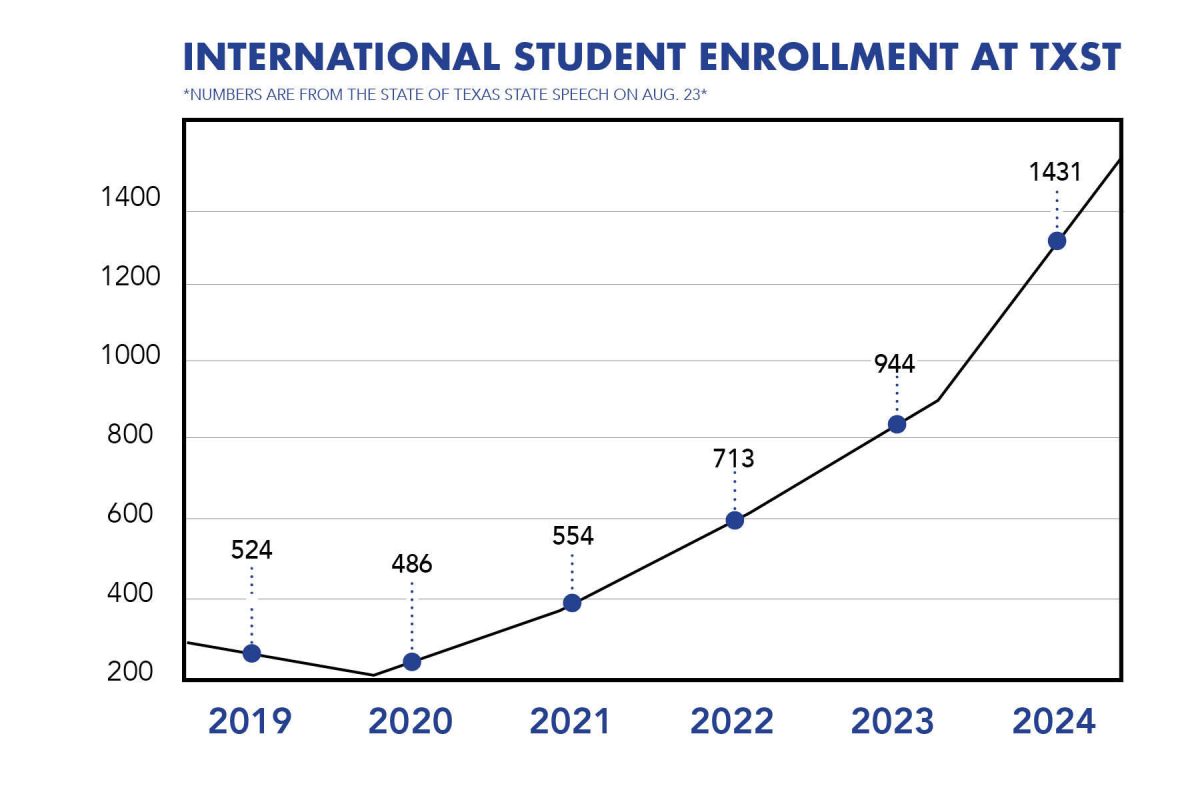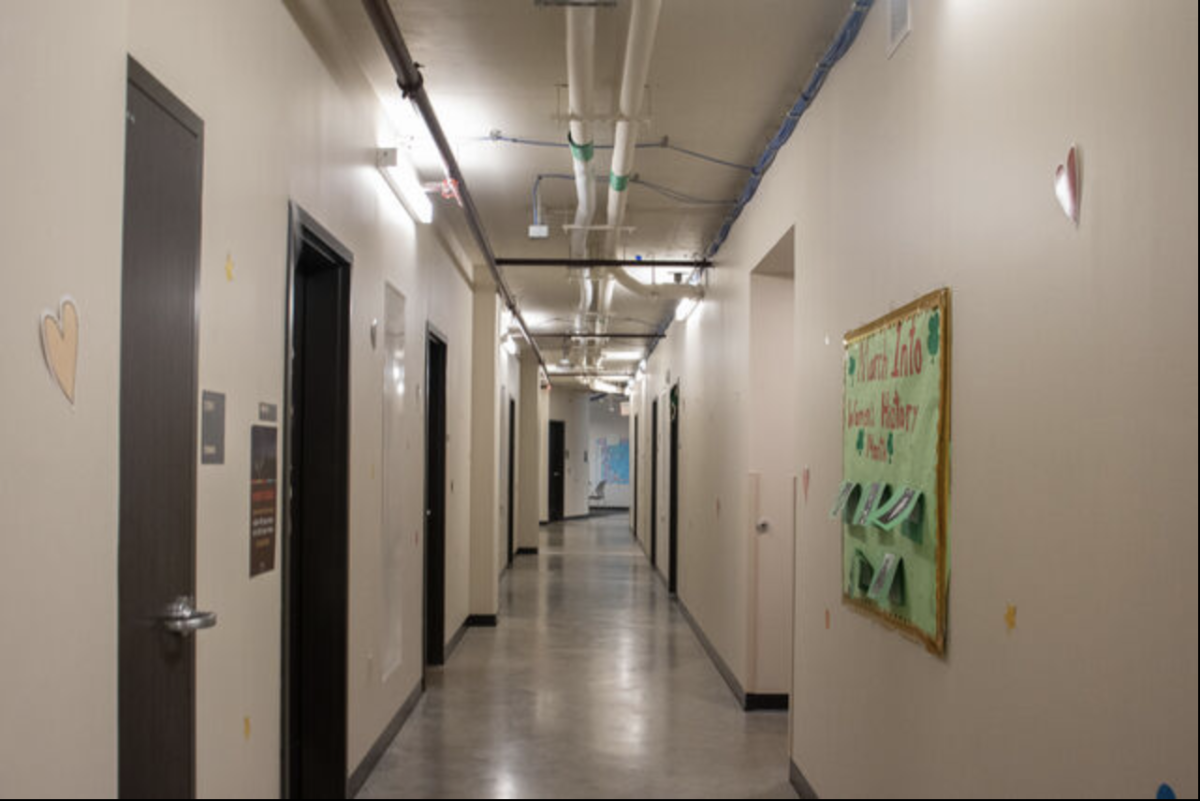Texas State’s record 1,525 international students this fall has caused an increase in the demand for more diverse dining options.
Some international students have criticized the dining options on campus. Archana Aryal, pre-nursing freshman from Nepal, said Texas State does not have enough diverse options in its dining halls to accommodate the growing number of international students.
“Because Texas State is welcoming so many international students they need to take into account their diet,” Aryal said. “I wish there were more options so students would feel more comfortable.”
Yuno Momma, international studies sophomore from Japan described Revolution Noodle in the LBJ Student Center as “overpriced” and “inauthentic.”
While disappointed by the available options, Momma is glad the university is making an effort to provide more international cuisine.
“I have friends at other universities in the U.S. and they don’t have any Japanese restaurants. Maybe I’m lucky to have at least one,” Momma said.
Momma said that he has opted to buy ingredients locally to make meals in his dorm.
Aryal said she also had issues with Texas State’s meal plans. The university requires any freshman living on campus to purchase a meal plan, which ranges from $1,495-$2,350 per semester. Aryal said that is financially unsustainable for her as she doesn’t have many options to choose from on campus.
“I have the bronze meal plan and it’s the cheapest one but it’s still so much money and I don’t have many options to choose from as a vegetarian,” Aryal said. “I think [Texas State] needs to look into the needs of international students so they are comfortable purchasing a meal plan.”
Texas State does have a way for students to give feedback through the Food Service Survey. According to Chin Hong Chua, Chartwells’ resident district manager, the survey runs every October. Chua also said that students can give recipes to dining hall chef’s to cook for them.
“The challenge we face is sometimes the ingredients are hard to source, or sometimes it could be the equipment,” Chua said.
Chua said the university is working to accommodate the dietary needs and desires of international students and one way they are doing this is by hiring international students to work in the dining halls. He said bringing those students in allows them to share recipes from their home country with dining staff.
According to Chua, the Den serves halal food and the LBJ Student Center has options for Indian and Nepalese foods. The university is trying to expand their offerings with future expansions to the on-campus dining system, Chua said.
“We are planning for a third dining hall,” Chua said. “We are looking at putting a tandoori oven in the dining hall. A tandoori oven is widely used in the Middle East, [so you] can make more authentic meat or naan bread.”
Chua said dining staff will work with students when possible to meet necessary dietary restrictions, such as for halal or kosher foods.
“I believe we also have a dietary form for [students] to fill out,” Chua said. “Then our campus chef will reach out to the person and walk that walk.”
While there are no current dining facilities that are allergen-free, Chua said they are hoping to put an allergy-free serving station in the planned new dining hall located by LBJ Student Center.
Editor’s note: This story has been updated to reflect the accurate number of international students at Texas State.






















Abshire • Dec 10, 2024 at 9:23 am
What initially drew my attention to this article was the graph included with the headline on the University Star “Tuesday Brief” from December 12th. Although I am generally interested in enrollment data, what caught my eye was that the data value points in the graph do not align with the y-axis scale. This led me to look a little closer at the graph and the data it purports to visualize.
In particular, I was curious about the source and what other enrollment data it might provide, and it turns out that the data on the graph were not included in the President’s State of TXST speech delivered on August 23, 2024 (link below) as indicated in the graph. As far as I could tell, the only data-point mentioned in the speech is the “preliminary” international enrollment for Fall 2024 (although one could estimate the 2023 enrollment based on a mentioned percentage increase of “55%”); however, according to the speech it was 1,494 international students, not 1,431 international students.
Additionally, the very first line of the text of the article again asserts that international enrollment is a “record 1,431” students, the same as the graph, but, if a reader follows the link provided, the author’s included source indicates that international enrollment is 1,525 students. Neither of the sources provide information on international student enrollment for academic years 2019 through 2023.
So where did these numbers come from?
https://www.president.txst.edu/communications/select-speeches-and-presentations/state-of-txst-2024.html